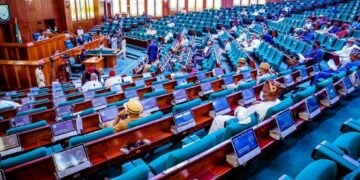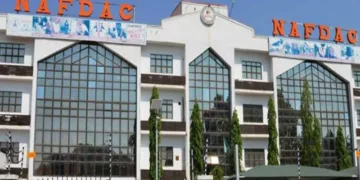The Network of Journalists on Indigenous Issues (NEJII), in partnership with MacArthur foundation and the Resource Centre for Human Rights and Civic Education (CHRICED), has charged media practitioners to intensify coverage on the rights and lived realities of Abuja’s Indigenous communities, whose historical identity remains endangered by decades of displacement.
Speaking at the media training in Abuja, the executive director of CHRICED, Dr. Ibrahim M. Zikirullahi, traced the unsettling history of dispossession faced by the Original Inhabitants of the Federal Capital Territory (FCT).
He described how ancestral landownership was wiped out under the weight of national development.
Zikirullahi recalled that major national facilities were acquired at startlingly low prices, with the present National Stadium reportedly sold for ₦500 and the Aso Rock Villa site procured for ₦20,000, while the Indigenous communities were left uprooted and unsettled.
“Development continues to thrive on lands where the first owners have been pushed out. We must pursue justice that restores dignity and protects their identity,” he said.
Also speaking, the NEJII coordinator, Mr. Adewale Adeoye, stressed that cultural identity is lost the moment Indigenous languages fade.
He identified displacement and limited access to education as the most pressing issues Indigenous families face.
“Once a people lose their language, they lose their identity. Our mandate as journalists is clear: report, publicise, and follow up. If a challenge is resolved, that becomes yet another story to amplify,” he said.
In his presentation on Effective Media Coverage of Abuja Original Inhabitants, programme officer at CHRICED, Mr. Victor Ezenwa Emejuiwe, highlighted the pivotal role both print and electronic media must play in promoting visibility and accountability in Indigenous rights reporting.
He explained that print media provides permanence, documentation, and reference for advocacy, while broadcast platforms reach grassroots communities in real time. He encouraged media professionals to embrace solutions journalism that goes beyond exposing problems to spotlighting policies and actions capable of restoring equity.
“Media narratives shape public consciousness,” Ezenwa noted.
“The more we report on Indigenous communities with accuracy and dignity, the harder it becomes for policymakers to ignore them.”
The session featured practical, hands-on exercises in digital storytelling, ethical reporting tools, and strategies for building long-term media advocacy around Indigenous issues affecting the FCT.
Participants, drawn from various media organisations, concluded the event with exuberant commitments to become strong agents of change.
They pledged to increase Indigenous voices in mainstream news, drive follow-up investigations, and collaborate on long-term coverage capable of advancing equity and recognition for the Original Inhabitants of Abuja.
The organisers reaffirmed that the movement for justice, identity, and inclusion is not merely a fight for history, but a battle for the future.





